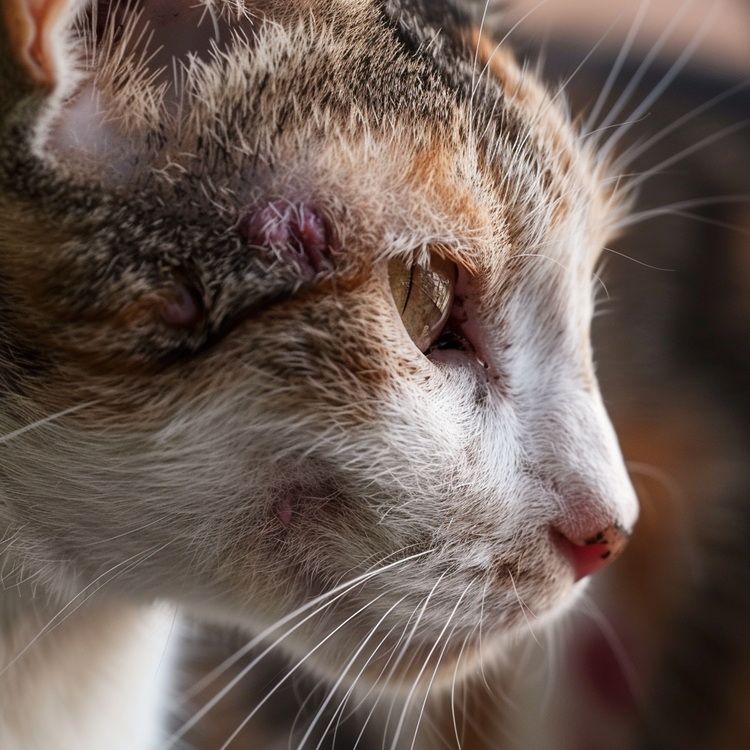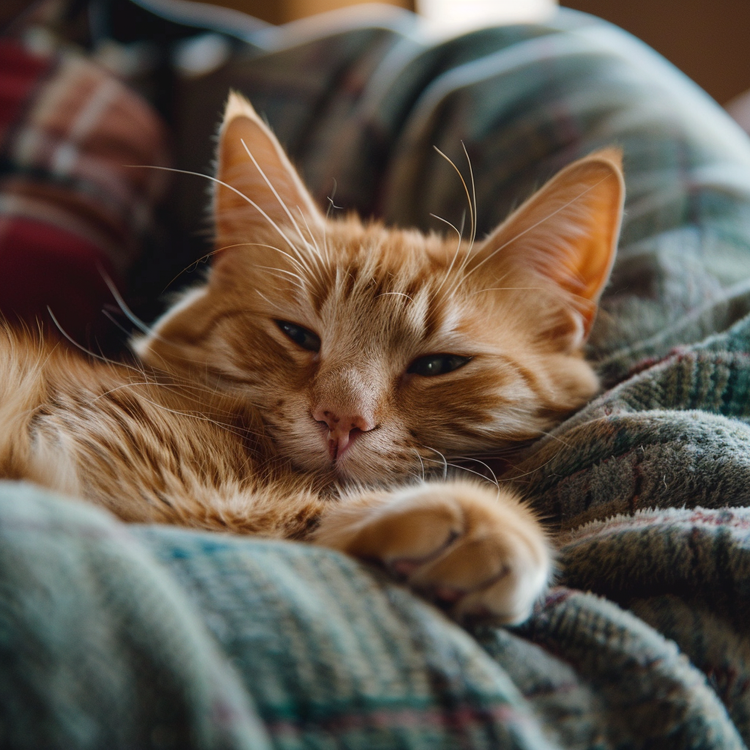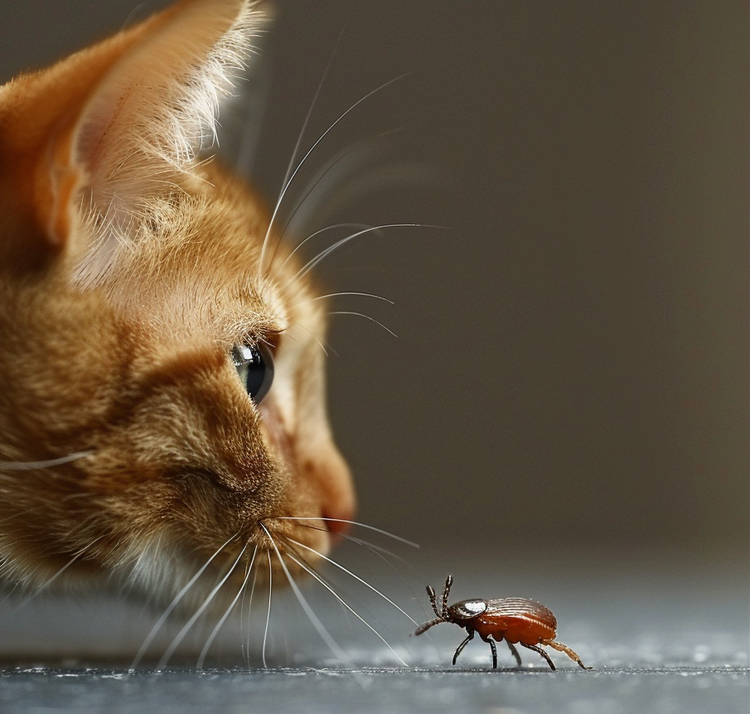Supplements for Cats: Are They Necessary?
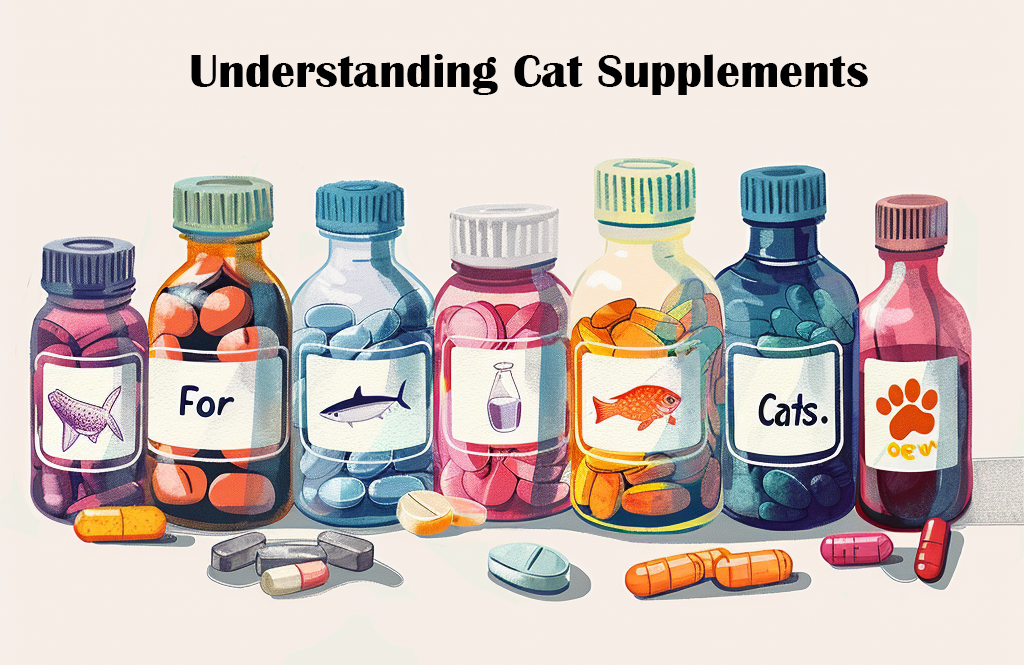
In recent years, the spotlight on pet health and nutrition has intensified, reflecting a broader trend towards more attentive and informed pet care. As cat owners delve deeper into the complexities of feline well-being, the conversation around dietary supplements has become increasingly prominent. This burgeoning interest is driven by a desire to provide our furry companions with a life of optimal health and vitality. However, the question of whether supplements are a necessary addition to a cat's diet sparks a lively debate among pet enthusiasts and experts alike.
While some argue that a well-balanced, high-quality commercial diet fulfills all of a cat's nutritional needs, others advocate for the targeted benefits supplements can offer, especially in addressing specific health concerns or dietary deficiencies. This divide prompts a closer examination of what supplements can truly offer to our feline friends and under what circumstances they might be beneficial. As we navigate through this discussion, it's essential to approach cat supplementation with a critical eye, ensuring that any additions to their diet are grounded in a deep understanding of feline nutrition and vet-approved practices.
Understanding Cat Nutrition Basics
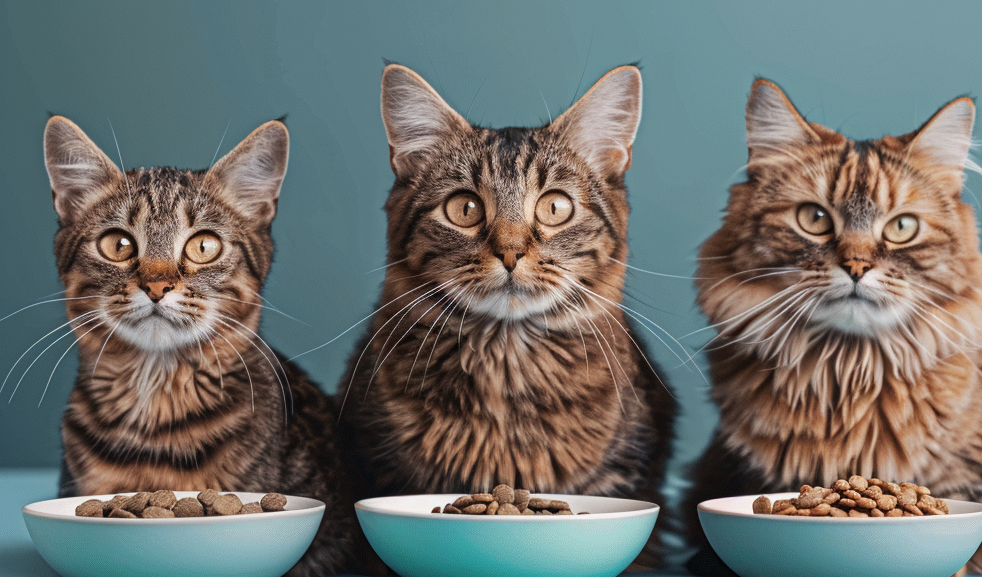
Understanding the fundamentals of cat nutrition is pivotal for any pet owner aiming to ensure their feline's health and longevity. A well-rounded diet is the cornerstone of good health, but navigating the specifics can sometimes be complex. Cats are unique creatures with specific nutritional requirements that vary throughout their lives. Recognizing these needs is the first step toward providing the best care possible.
- Proteins: Serve as the building blocks for body tissues, supporting growth and repair. High-quality animal proteins should be the main component of a cat's diet to meet their amino acid requirements.
- Fats: Crucial for energy, the absorption of certain vitamins, and maintaining a healthy skin and coat. Omega-3 and omega-6 fatty acids, in particular, are essential for preventing inflammation and promoting overall health.
- Vitamins: Each vitamin plays a unique role in a cat's health, such as vitamin A for vision and immune function, B vitamins for energy metabolism, and vitamin D for calcium absorption.
- Minerals: Essential for various bodily functions, including bone formation (calcium, phosphorus), oxygen transport (iron), and immune system support (zinc, selenium).
Incorporating these essential nutrients into a cat's diet through high-quality, balanced commercial foods is crucial. Yet, it's important to recognize that individual needs can vary greatly. Factors such as age, health status, and activity level all influence the specific dietary requirements of a cat. This diversity among felines is why a tailored approach to nutrition, under the guidance of a veterinarian, is indispensable.
Circumstances That May Require Supplements
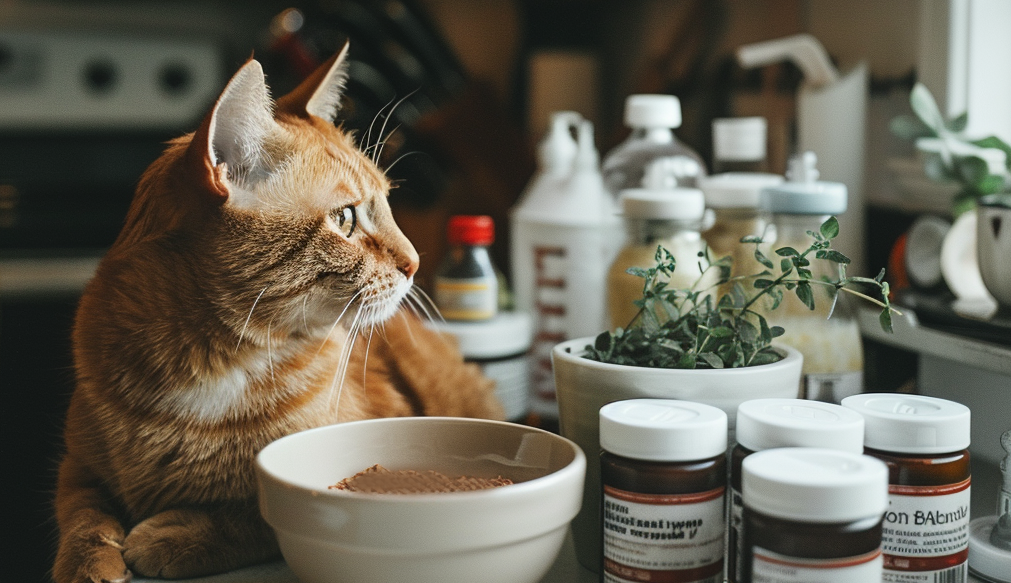
Navigating the nutritional landscape for our feline friends can sometimes require more than a well-rounded diet, particularly when faced with specific life stages, health conditions, or dietary restrictions. Understanding when and why supplements may be beneficial is key to optimizing your cat's health and well-being.
Life Stages: Just like humans, cats have varying nutritional needs as they journey through different life stages. Kittens, bustling with energy and growth, may benefit from supplements that support their rapid development, such as DHA for brain health. Adult cats might not require such targeted supplementation, provided they're on a balanced diet. However, as cats enter their senior years, supplements like glucosamine can become invaluable, aiding in the maintenance of joint health and mobility.
Health Conditions: Certain health challenges, including joint problems, kidney disease, and issues related to the urinary tract, can be managed more effectively with the support of specific supplements. For instance, omega-3 fatty acids can help reduce inflammation associated with joint issues, while antioxidants may support kidney health. Supplements targeting urinary tract health can help maintain the right pH balance, promoting overall urinary tract wellness.
Dietary Restrictions: Cats on homemade, raw, or limited-ingredient diets might miss out on some key nutrients essential for their overall health. In these cases, supplements can fill nutritional gaps, ensuring that your cat receives a comprehensive spectrum of essential vitamins and minerals. It's crucial, however, to embark on supplementation under the guidance of a veterinarian, ensuring that any additions to your cat's diet are both necessary and beneficial, tailored to their specific dietary needs and health conditions.
Common Supplements for Cats and Their Benefits
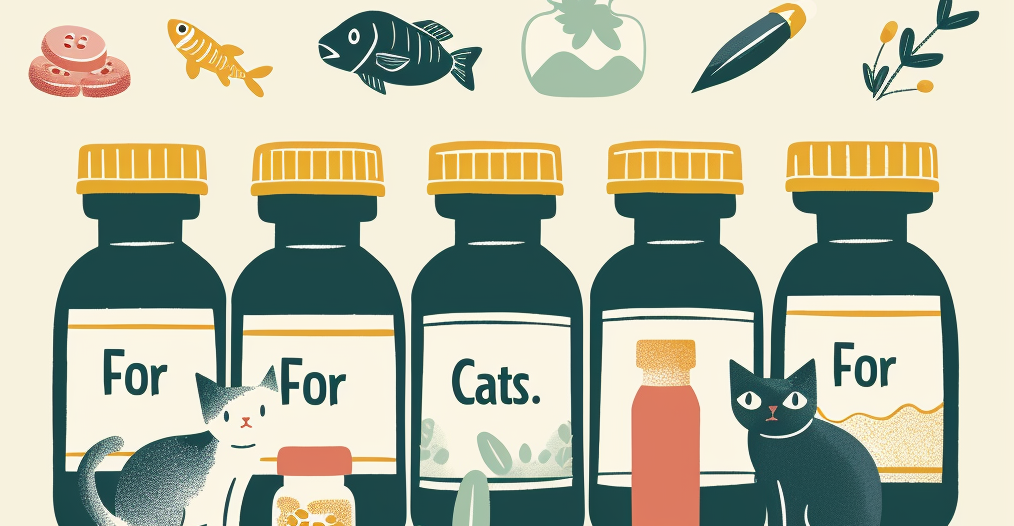
In the quest for optimal feline health, certain supplements stand out for their targeted benefits, addressing everything from skin and coat quality to digestive health and beyond. Understanding the role and potential advantages of these supplements can guide cat owners in making informed decisions to enhance their pets' well-being.
Multivitamins: Serving as a nutritional safety net, multivitamins for cats are formulated to bridge any gaps in their diet, ensuring that they receive a balanced spectrum of essential vitamins and minerals. These supplements support overall well-being, contributing to a robust immune system, healthy skin, and a vibrant coat.
Recommendations:
- Pet Honesty Cat Multivitamin Chews - $12.59 | Click Here
- VetriScience NuCat Multi Vitamin for Cats, 90 Chewable Tablets - $7.55 | Click Here
- Nutri-Vet Multi-Vite Multivitamin Paw Gel for Cats - $13.50 | Click Here
Omega-3 Fatty Acids: Renowned for their anti-inflammatory properties, omega-3 fatty acids are vital for maintaining healthy skin and coat, reducing flakiness and dullness. Beyond aesthetic benefits, they play a crucial role in joint health, offering relief and increased mobility for cats suffering from arthritis or other inflammatory joint conditions.
Recommendations:
- Nordic Naturals Omega-3 Cat, Unflavored - 2 oz -$15.26 | Click Here
- Wild Alaskan Salmon Oil for Dogs & Cats 16 Fl Oz - $24.27 | Click Here
Probiotics: These beneficial bacteria are pivotal in promoting a healthy digestive system, aiding in the absorption of nutrients, and fostering a balanced gut flora. Probiotics also bolster the immune system, helping to protect cats from pathogens and reducing the severity of some allergies and infections.
Recommendations:
- Fera Organic Cat & Dog Probiotic Supplement with 12 Strains & Prebiotics for Your Pet’s Digestive Health - 60 Scoops - $26.06 | Click Here
- Bark & Whiskers Complete Probiotics, For Dogs and Cats, 3.17 oz (90 g) - $26.57 | Click Here
- Pet Naturals Daily Probiotic for Cats, 30 Chews - $6.06 | Click Here
Glucosamine and Chondroitin: These supplements are the building blocks for cartilage and joint fluid, providing essential components for joint repair and maintenance. They are particularly beneficial for senior cats or those with a history of joint issues, enhancing mobility and comfort.
Recommendations:
- NaturVet – Glucosamine DS Plus, Enhanced with Glucosamine, MSM & Chondroitin - $29.44 | Click Here
- Nutramax Cosequin Joint Health Supplement for Cats - With Glucosamine and Chondroitin, 30 Capsules - $8.51 | Click Here
Antioxidants: Playing a critical role in combating oxidative stress, antioxidants support immune health and can contribute to the prevention of chronic diseases. By neutralizing free radicals, antioxidants help maintain cellular integrity and overall health, making them a valuable addition to a cat's diet.
Recommendations:
- Dr. Bill’s Feline Health Defense | Antioxidants for Cats - $16.00 | Click Here
- VETRISCIENCE Glycoflex Plus Chondroitin Maximum Strength Hip and Joint Supplement for Cats, 30 Chews - $7.95 | Click Here
Incorporating these supplements, when appropriate, can significantly contribute to a cat's quality of life. However, it's imperative to consult with a veterinarian to ensure these additions are suitable for your cat's specific health profile and nutritional needs.
Risks and Considerations
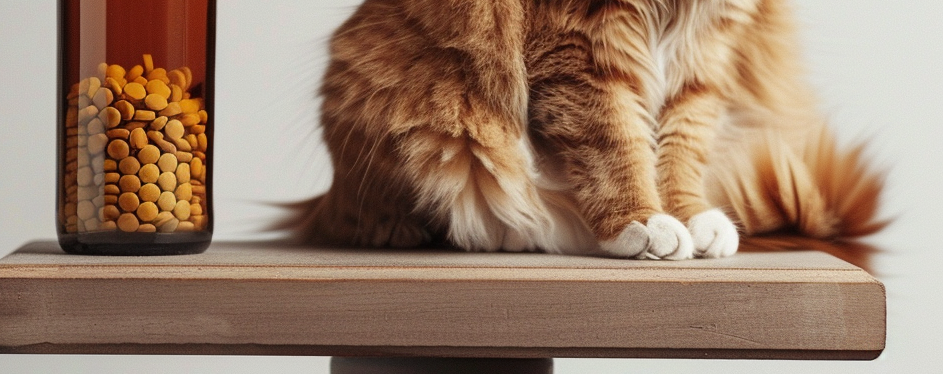
Introducing supplements into your cat's diet comes with its share of responsibilities. While the benefits of dietary supplements for feline health are well-documented, pet owners must proceed with caution to prevent any adverse effects. Understanding the potential risks and maintaining a responsible approach are key steps in safeguarding your cat's health.
- Over-supplementation: Can lead to toxicity or nutrient imbalances, which may harm your cat. Always adhere to recommended dosages.
- Quality of Supplements: Opt for products with the NASC Quality Seal to ensure compliance with high standards of production and safety.
- Consultation with a Veterinarian: Essential before starting any supplement regimen. A vet can provide tailored advice, ensuring supplements are a beneficial addition to your cat’s care plan.
The decision to supplement should not be taken lightly. With the plethora of options available, it's easy to feel overwhelmed. However, the cornerstone of effective supplementation is not just about choosing the right product; it's about understanding the needs of your pet and making informed decisions based on professional guidance. This careful approach ensures that supplements serve their intended purpose: to enhance, not compromise, your cat's health.
How to Choose the Right Supplements
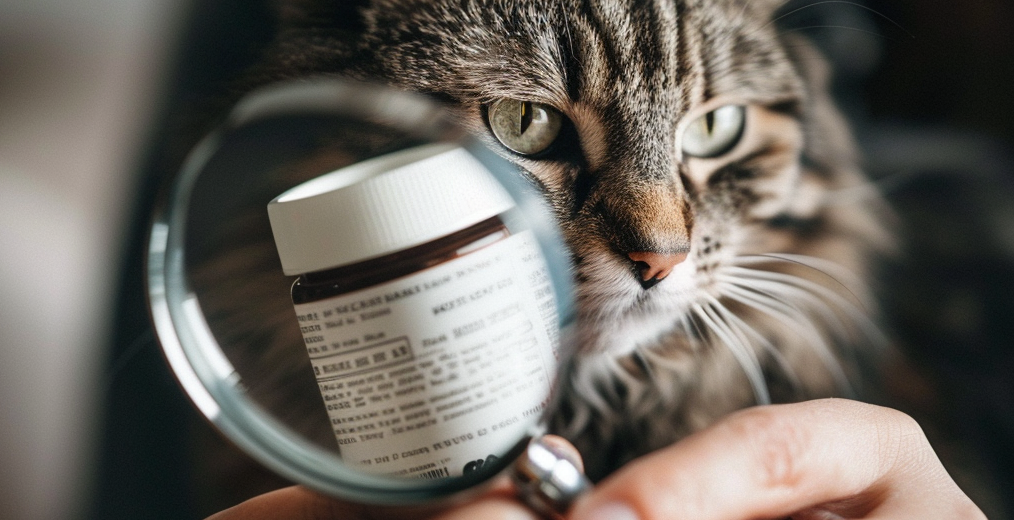
Selecting the appropriate supplements for your feline companion involves a blend of veterinary insight and savvy label reading. Start by consulting with your veterinarian, who can conduct a thorough assessment of your cat's health and dietary needs. This professional evaluation ensures that any supplements you consider are genuinely beneficial and tailored to your cat's unique requirements.
When it comes to understanding labels and ingredients, prioritize transparency and simplicity. Look for products that clearly list all ingredients, along with their purposes, and ensure they're free from unnecessary fillers or additives. It's crucial to choose supplements specifically designed for cats, as their nutritional needs differ significantly from other pets. Feline-focused formulas take into account the delicate balance of nutrients required to support cat health optimally.
Remember, the right supplement can make a world of difference in your cat's life, but only when chosen with care and knowledge. By working closely with your vet and paying close attention to product details, you'll be well-equipped to make informed decisions that enhance your cat's well-being.
Final Thoughts:
At the heart of feline wellness lies a balanced diet, the cornerstone upon which the health of our beloved cats firmly stands. Supplements, while beneficial under certain circumstances, are just that—supplements meant to enhance, not replace, the nutrients obtained from a comprehensive diet. The pivotal role of veterinary guidance cannot be overstressed, ensuring these additions are both safe and suited to our pets' individual health profiles.
As responsible pet owners, it's incumbent upon us to make informed decisions regarding the introduction of supplements into our cats' routines. By prioritizing their dietary needs and consulting with professionals, we underscore our commitment to their health and happiness. Let's continue to nurture our feline friends with the care and wisdom they deserve, ensuring their lives are as enriching and vibrant as the companionship they offer us.
FAQs About Cat Supplements
Are supplements necessary for all cats?
Not all cats need supplements. A well-balanced, high-quality commercial diet often fulfills a cat's nutritional needs. However, supplements may be beneficial for cats with specific health conditions, dietary restrictions, or at different life stages. Always consult with a veterinarian before introducing supplements.
How do I know if my cat needs supplements?
The best way to determine if your cat needs supplements is by consulting with a veterinarian. They can assess your cat's health, diet, and lifestyle to recommend any necessary supplements.
Can I give my cat human vitamins and supplements?
No, you should not give your cat supplements intended for humans. Cats have unique nutritional requirements, and some human supplements can be harmful to them. Always choose supplements specifically designed for cats.
What are the most common supplements recommended for cats?
Common supplements for cats include multivitamins, omega-3 fatty acids (for skin and joint health), probiotics (for digestive health), glucosamine and chondroitin (for joint support), and antioxidants (for immune support).
How can I ensure the quality of supplements for my cat?
Look for supplements that carry the NASC (National Animal Supplement Council) Quality Seal or those recommended by your veterinarian. Always choose products from reputable brands that specialize in pet health.
Can over-supplementing harm my cat?
Yes, giving your cat too much of certain nutrients can lead to toxicity or nutrient imbalances. It's crucial to follow the dosage recommended by your veterinarian and not to administer multiple supplements without professional advice.
Can supplements replace a balanced diet for my cat?
No, supplements are intended to complement a balanced diet, not replace it. They can help address specific nutritional gaps or health concerns but should not be considered a substitute for a complete and balanced diet.
How long does it take to see the effects of supplements on my cat?
The time frame to see the effects of supplements can vary depending on the supplement and the health condition it's addressing. Some effects might be noticeable within a few weeks, while others may take longer. Consult your veterinarian for more specific timelines.
How do I introduce supplements into my cat's diet?
Introduce any new supplement gradually, following the dosage instructions provided by the product or your veterinarian. It's often helpful to mix the supplement with your cat's food to encourage acceptance. Monitor your cat for any adverse reactions during the introduction period.
What should I do if my cat refuses to take supplements?
If your cat is resistant to taking supplements, try different forms, such as powders mixed into food, flavored chews, or liquids. Consult your vet for advice on palatable options or alternative ways to meet your cat's nutritional needs.
